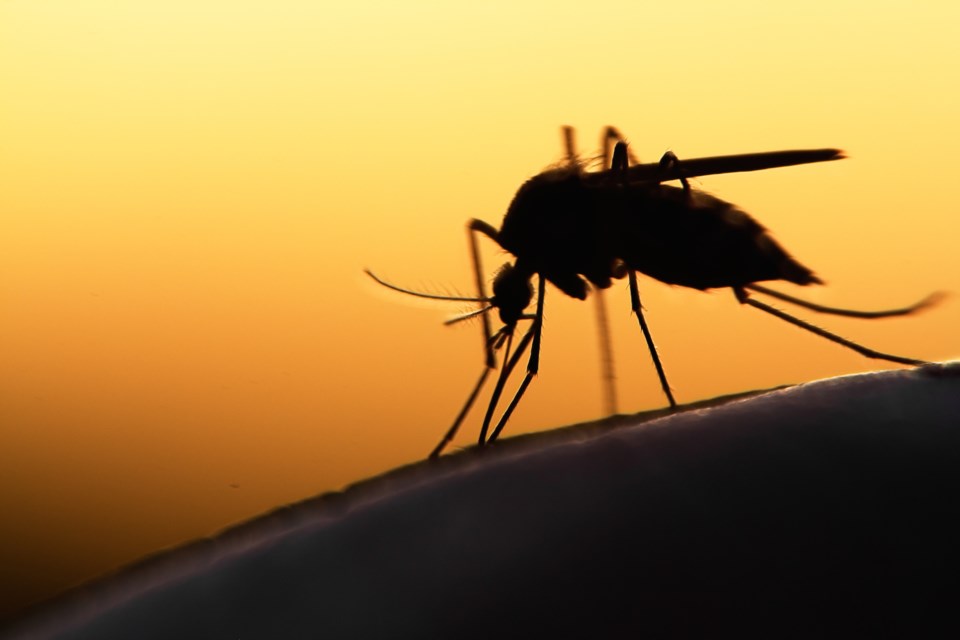NEWS RELEASE
CITY OF LONGMONT
*************************
The City of Longmont will again spray local neighborhoods to control the spread of West Nile Virus this week following the identification of a positive West Nile mosquito in Boulder.
In keeping with Longmont’s West Nile Virus control plan, the City’s mosquito control contractor, Vector Disease Control International (VDCI), will spray to eradicate mosquitoes for the second time this season on Thursday night, July 22, 2021, weather permitting. Should thunderstorms and/or wind interfere with the spraying process, spraying will be scheduled for Friday night, July 23.
According to Dan Wolford, Land Program Administrator for the City of Longmont, “This week saw an overall reduction in mosquito numbers by approximately 26%. However, we also saw a 10% increase in the Culex species, which transmit West Nile, to a trap average of 83.2%.”
Zones to be sprayed this week are:
Jim Hamm (LM-03)
Garden Acres park (LM-10)
The Shores (LM-17)
Sandstone Ranch (LM-22)
Union Reservoir (LM-23)
Great Western/Mill Village (LM-27)
St Vrain Greenway (LM-28)
Creekside (LM-31)
Renaissance (LM-34)
Lanyon Park/Stoney Ridge (LM-41)
Izaak Walton Park (LM-42)
Rough & Ready South (LM-43)
Please see the City’s mosquito control zone map for further location details.
Longmont fogging is triggered when West Nile Virus positive mosquitoes are discovered in Larimer, Boulder or Weld Counties and when Longmont traps exceed 150 mosquitoes per trap. Boundaries of the predetermined spray areas can be seen on a map provided by the City and VDCI on the West Nile Virus webpage at LongmontColorado.gov/westnile. When the triggering events occur, notice is provided on this webpage on Tuesdays that spraying will occur later that week – typically on Thursday evenings — giving residents 48 hours’ notice of any spraying.
Boulder County Public Health and Longmont officials urge residents to take necessary precautions to protect themselves. Keep safe this summer, and remember the 4Ds:
1. Use DEET-enhanced insect repellent or alternative.
2. DRESS in light colors and loose fitting long sleeves and pants,
3. Avoid the outdoors from DUSK until DAWN.
4. DRAIN standing water outside your home.
Managing Mosquitoes and Preventing the Spread of West Nile Virus
The City of Longmont has contracted with VDCI to implement an "integrated pest management program" to combat mosquitoes that might carry the West Nile Virus. This program focuses on first attacking mosquitoes in their larval stage before they become airborne. This is the best method since it eliminates mosquitoes before they hatch. This method also minimizes fogging to kill the adult, airborne bugs. However, some localized spraying becomes necessary when the West Nile mosquito population increases due to habitat and weather conditions.
VDCI uses state-of-the-art technology, calibrated application timing, and least-toxic products to minimize non-target impacts. All adult mosquito control is accomplished using Ultra Low Volume (ULV) fogging equipment and is performed after dusk when the majority of mosquito species are most active.
Residents Can Receive Notifications Related to West Nile Virus
VDCI maintains a database of Longmont residents who have made notification or shutoff requests for their property if spraying is scheduled. There are three options:
1. Call Notification Only: VDCI will phone you before spraying in your neighborhood
2. Address Shutoff Only: VDCI will shutoff the spray machine while driving past your property
3. Notification & Shutoff: VDCI will phone you before spraying in your neighborhood and shutoff the spray machine while driving past your property
Please contact VDCI to make a notification or shutoff request by calling 877-276-4306 or visiting vdci.net/colorado.
The City also offers an eNotification system that provides residents with up-to-date information on a variety of topics including West Nile Virus. Visit the eNotification subscription page to sign-up and choose the West Nile category to receive notification when Local Spraying Alerts are issued.
General Info on West Nile Virus
WNV is transmitted to humans from the bite of an infected female mosquito. While most infections are mild, the more serious infections can cause encephalitis (inflammation of the brain) and/or meningitis (inflammation of the brain's lining), loss of vision, paralysis, coma, tremors, convulsions, and death.
Symptoms of WNV include fever, extreme fatigue, headache, body aches, and occasionally can also include skin rashes and swollen lymph nodes. Generally, symptoms appear 3 to 14 days after being bitten by an infected mosquito. Anyone who experiences these symptoms should consult their health care providers.
*************************


.jpg;w=120;h=80;mode=crop)
